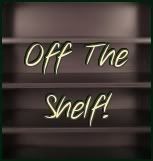
Hannah Coulter by Wendell Berry
Phew, just made it in the nick of time! This is my third and final Southern Challenge book.
Summary (from Publishers Weekly): "This is the story of my life, that while I lived it weighed upon me and pressed against me and filled all my senses to overflowing and now is like a dream dreamed.... This is my story, my giving of thanks." So begin the reflections of Hannah Coulter, the twice-widowed protagonist of this slim, incandescent novel in Berry's Port William series. In 1940, the precocious, innocent Hannah leaves her small Kentucky farming town to work as a secretary in nearby Hargrave, where she meets Virgil Feltner, seven years her senior, who gently courts her. They marry and have a daughter, but Virgil, "called to the army in 1942," dies in the Battle of the Bulge. Love follows mourning, as a kind but driven farmer, Nathan Coulter, returns from combat and woos Hannah. In delicate, shimmering prose, Berry tracks Hannah's loves and losses through the novel's first half; the narrative sharpens as Hannah recounts her children's lives ... as Hannah relates her children's fate to her own deeply rooted rural background, she weaves landscape and family and history together ("My mind... is close to being the room of love where the absent are present, the dead are alive, time is eternal and all creatures prosperous").
My thoughts: Not much really "happens" in this book, but it's a lovely, quiet, solid novel. Most of it reads like an actual memoir - Hannah's voice is incredibly real as she describes her life, I was very impressed. That's what the novel's about, life - joys, sorrows, love, hard work, family and friends. Hannah lived in a time that's just about gone now - where friends and extended family formed the "membership" of a town like Port William. Hannah sees life as a blessing, even the hard times, and she and her husband Nathan live by the notion that they will "live right on" no matter what happens. There were many wonderful quotes about life and love throughout the book, actually - I kept meaning to remember them all, but there got to be too many.
The family's farm and Port William are described in loving detail. I didn't get much of a feel for Kentucky itself (which is why I chose the book - I've recently become interested in that state) but Port William is a character in the book as much as any individual person.
There are some bits of humour, too. My favourite was at the end when a young developer thinks that Hannah is an poor old widow woman who doesn't know the value of her property and she sets him straight on that score.
Overall conclusion: Despite it feeling more "fictional" at the end (in a sweet way, though) and not really liking the part about the Battle of the Bulge (which seemed a bit tacked on), I thoroughly enjoyed getting to know Hannah Coulter and her kin.















